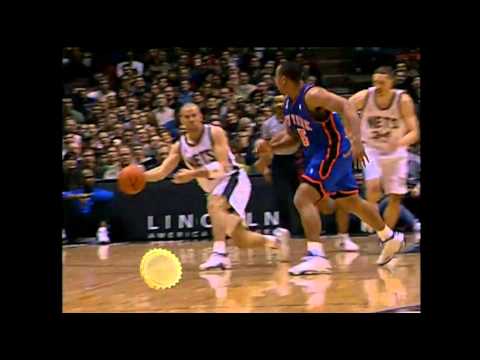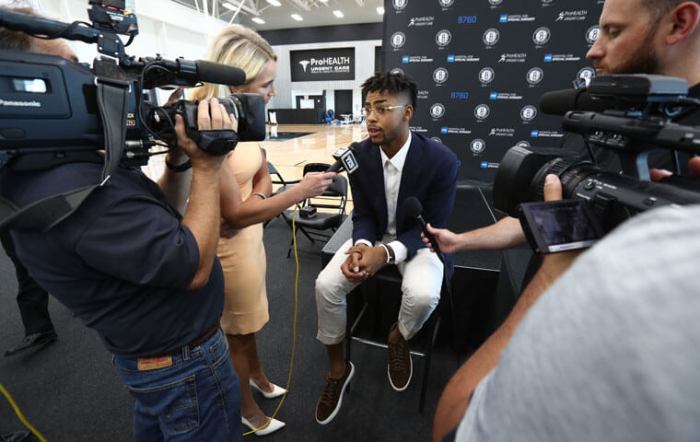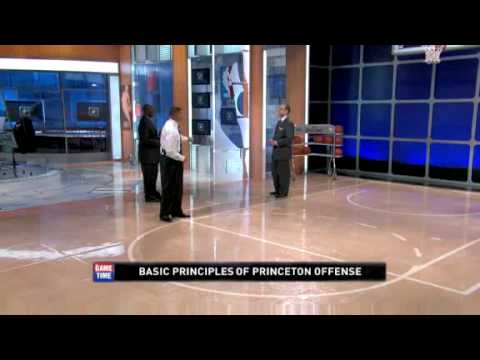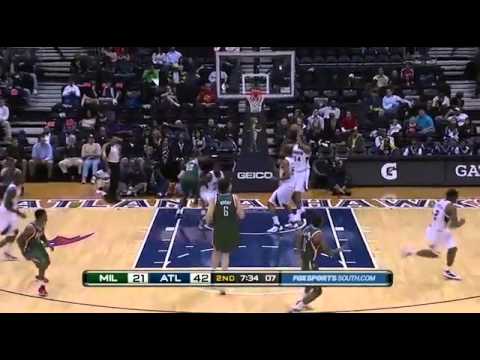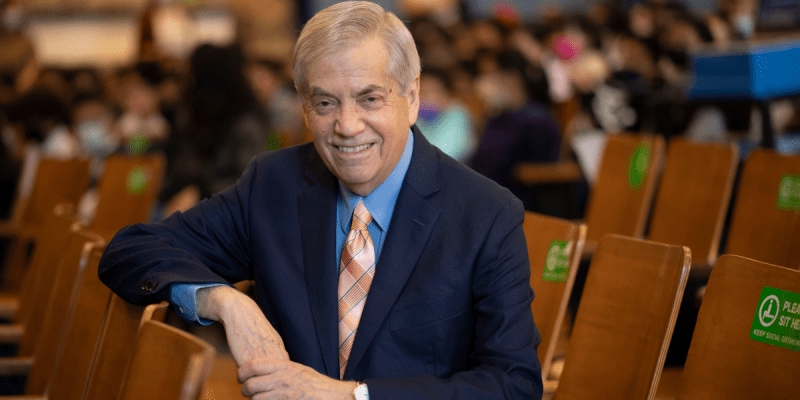It’s a hundred times easier with Lu. When everybody got hurt, our biggest loss was probably Lucious.
Byron Scott
The ultimate role player, Lucious’s penchant for floor spacing and consistent, smooth jumper made him an ideal fit next to Jason Kidd, and he played a key role both as a starter and reserve in the early 2000s. Lucious could never carry a team – he only averaged more than ten points per game once in his career, and wasn’t a particularly skilled player outside of his shooting in a way that would reflect statistically. But with the right pieces already in place, Lucious’s job was to make other people’s jobs easier. That’s exactly what he did.
 He didn’t hog the spotlight, didn’t assume it was his team over anyone else, and didn’t try to take over games. He knew he wasn’t there to run the ship. Instead, with the right mentality, he rode the Jason Kidd ride to Reinvigorated Careerland, and had two of his finest seasons as a benefactor of Kidd’s abilities.
He didn’t hog the spotlight, didn’t assume it was his team over anyone else, and didn’t try to take over games. He knew he wasn’t there to run the ship. Instead, with the right mentality, he rode the Jason Kidd ride to Reinvigorated Careerland, and had two of his finest seasons as a benefactor of Kidd’s abilities.
In some sense, Lucious played a survivor’s role – he lived through the awful teams of the late 90s, and during the Finals runs acted as a mentor to young players like Richard Jefferson. His easygoing nature made him a natural fit as a team leader, someone who could keep the clubhouse loose and still earn the respect of star players.
That’s not to say he didn’t perform. Two of his finest games came in the 2002 playoffs: Game 2 in the second round against Charlotte, in which he shot 10-11 for 24 points, adding seven rebounds as the Nets routed the Hornets; and Game 4 in the Finals against the Lakers, scoring 22 on 9-13 shooting as the Nets nearly pulled out one victory against the unstoppaShaqs.
In total, Lucious spent seven years in a New Jersey uniform. Strike his one-year stint in 2004-05 with Cleveland from his record, and he would’ve fulfilled his wish of finishing his career in a Nets uniform. He may not have been a superstar, but just as importantly, he knew he wasn’t a superstar.
One of Lucious Harris’s defining plays is, naturally, someone else’s highlight: Jason Kidd’s “bowling ball pass” against the Knicks. Kidd stripped Howard Eisley as Eisley attempted a pass, pulled up, and literally rolled the ball downcourt, like a bowler would roll a bowling ball. The pass is phenomenal — only a few guards in NBA history have the perfect touch to lay down a pass like that, and Kidd’s one of them. But Kidd never could have made that pass had Harris not been sprinting to the basket once Kidd broke the play. Even with his limited skillset and athleticism, it’s those kind of heady plays that made Harris so valuable on a team that mattered.

